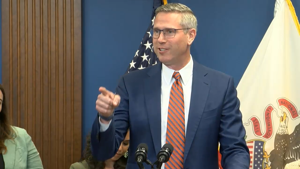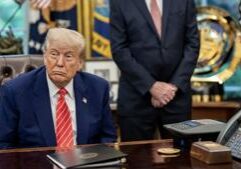
Trump signs bill studying cancer among military pilots
President Donald Trump has signed into law the Aviator Cancer Examination Study Act, which seeks to address cancer rates among former and current military aircrew members.
According to an Air Force study, these individuals experienced higher rates of melanoma, thyroid cancer and prostate cancer.
Building upon this study, the ACES Act requires the secretary of veterans affairs to investigate cancer and mortality rates for aircrew members who have served in the Navy, Air Force and Marine Corps.
The specific cancers the study will look into are melanoma, thyroid cancer, prostate cancer and others. The ACES Act is designed to help understand the link between certain types of cancers and military services.
U.S. Sens. Mark Kelly, D-Arizona, and Tom Cotton, R-Arkansas, who are both veterans, introduced this bill.
Kelly, a former Navy pilot, said, “Veteran aviators and aircrews deserve answers about the correlation between their job and cancer risks.”
“Getting this across the finish line has been a bipartisan effort from the start, and I’m proud to see this bill become law so we can deliver real answers and accountability for those who served,” he said.
Cotton, who was an Army infantry officer, said he was “grateful” to the president for making the ACES Act “the law of the land.”
“We owe it to past, present, and future aviators in the armed forces to study the prevalence of cancer among this group of veterans,” he explained.
In addition to having bipartisan support, many veteran groups and advocacy groups supported the ACES Act.
Jose Ramos, the Wounded Warrior Project’s vice president for government and community relations, said his organization was “proud to support” this piece of legislation.
He called the ACES Act a “critical step toward ensuring that veterans receive timely diagnoses, specialized screenings and the care they have earned.”
Theo Lawson, the assistant director of legislative programs for the military nonprofit Fleet Reserve Association, said this bill is a vital piece of legislation.
Lawson said the bill “directs critical research into cancer risks among military aircrew, ensuring better care and support for our aviators who have served our nation.”
Latest News Stories

WATCH: Trump ends funding for cashless bail policies, hedges on Guard deployment to Chicago

Hochul pushes back on Trump’s cashless bail funding threat

Frankfort Township Board Denies Liquor and Gaming Permits for Two Restaurants

Education Department finds GMU Violated Title VI

Redistricting opponents immediately appeal to CA voters

Former Transportation Secretary urges state taxpayer funding for Chicago transit

Illinois quick hits: Education tax benefits available; Giannoulias orders license plate reader to shut off access to CBP
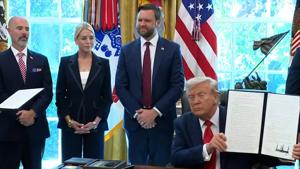
WATCH: Trump order withholds funds over no-cash bail policies like Illinois’
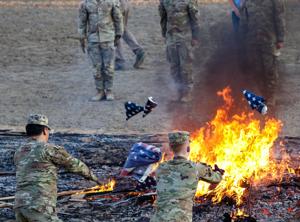
Trump eyes First Amendment showdown with order to prosecute flag burning

Trump strikes positive tone with South Korean president

House Oversight Committee to investigate D.C. police over crime data
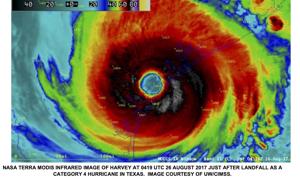
Twenty years later, Katrina still among Atlantic’s most deadly, costly

